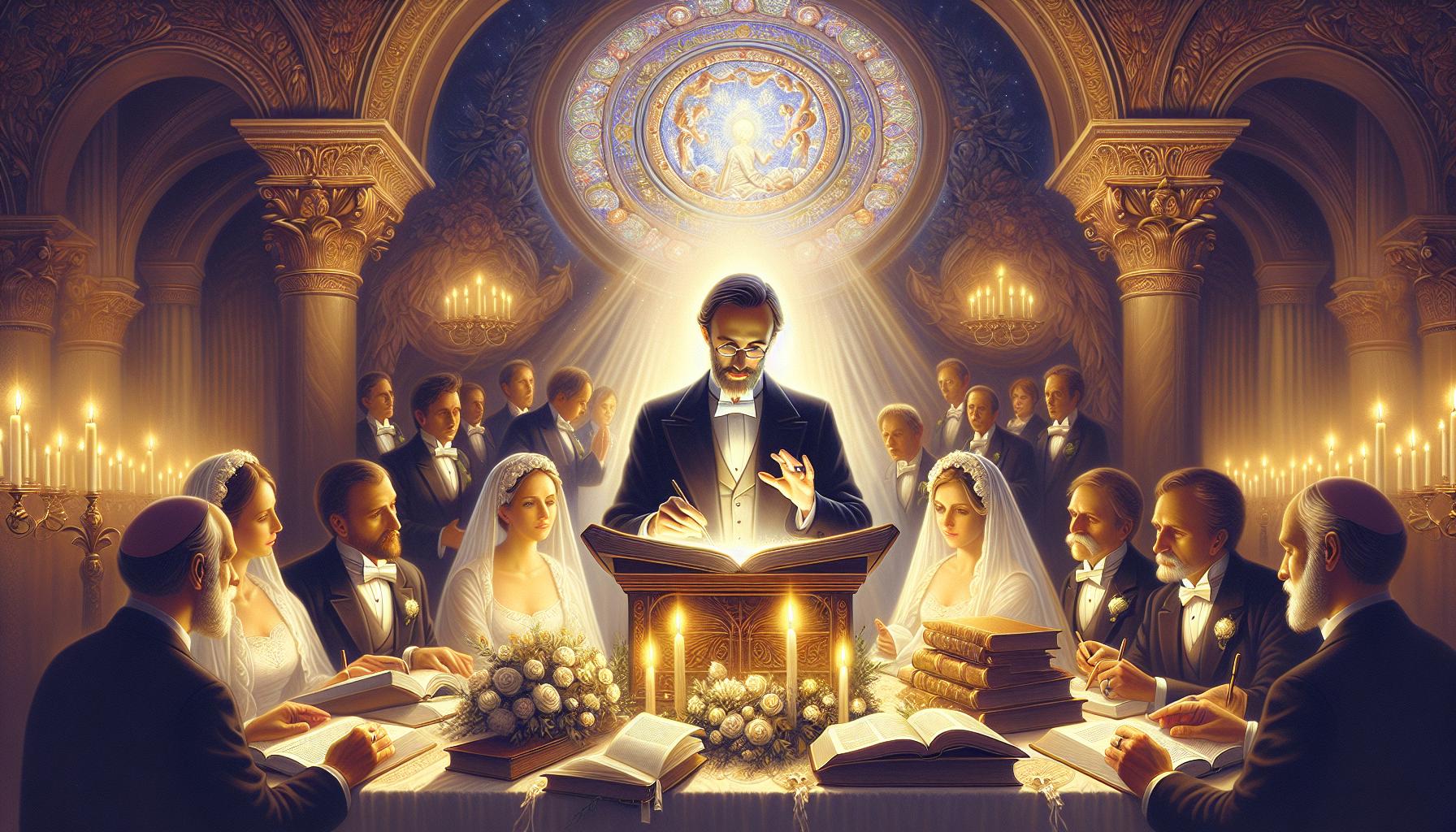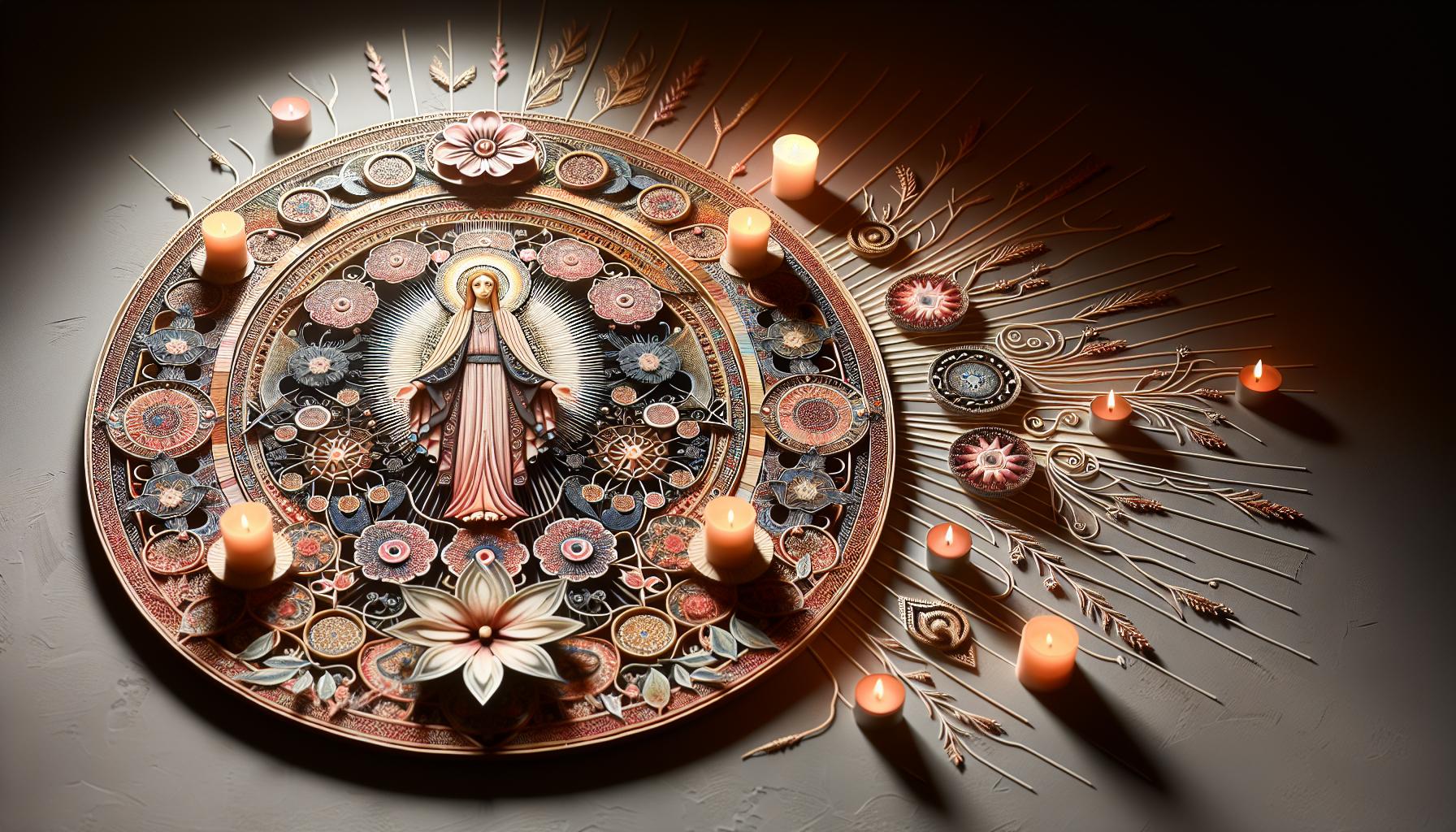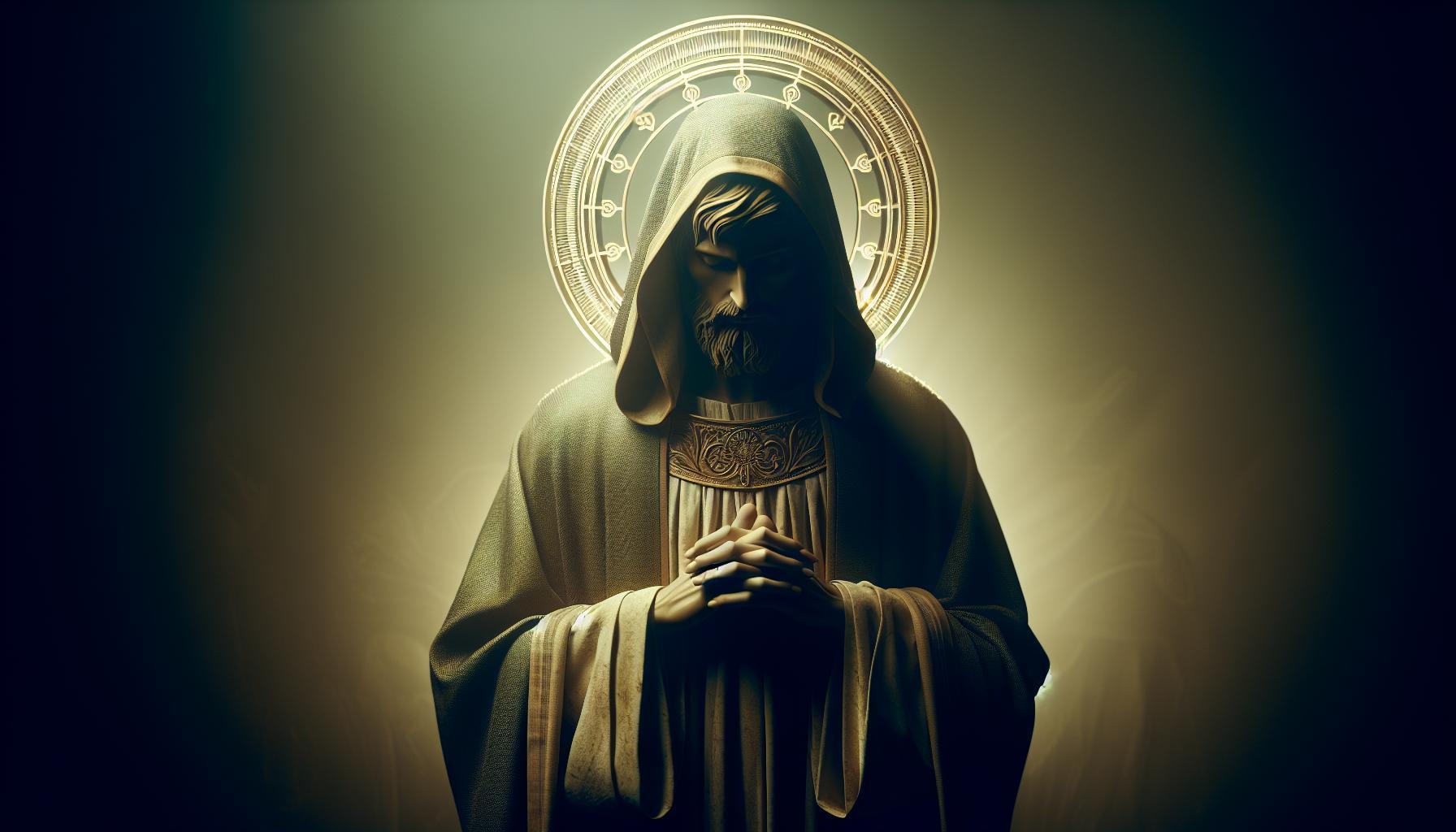Navigating wedding expenses can be overwhelming, and one often overlooked question is who should foot the bill for the officiant. Understanding the traditions and etiquette surrounding this aspect of wedding planning is crucial for couples to ensure a smooth and harmonious celebration. Let’s explore the norms and offer helpful tips for making this important decision.
Understanding the Role of the Preacher in Wedding Ceremonies
At the heart of every wedding ceremony is a profound moment where commitments are exchanged, and dreams are woven into reality. While the couple stands at the altar, it is often the preacher or officiant who guides them through this sacred ritual. Understanding the multifaceted role of the preacher not only sheds light on the ceremony itself but also informs couples about the associated customs and financial responsibilities.
Spiritual Leader and Guide
The preacher serves primarily as a spiritual leader, tasked with creating an atmosphere of reverence and significance. This role encompasses several essential responsibilities:
- Customization of the Ceremony: Many preachers work with couples to personalize their vows and readings, ensuring the ceremony reflects their unique relationship and beliefs.
- Conducting the Ceremony: The preacher orchestrates the flow of the ceremony, making sure all elements, from music to readings, are well-timed and resonate with the gathered guests.
- Providing Guidance: A preacher often offers pre-marital counseling, assisting couples in their preparations for married life, and helping them navigate potential challenges.
Legal Recognition
Beyond spiritual significance, the role of the preacher also includes the legal dimension of marriage. Many officiants are authorized to sign marriage licenses, ensuring that the union is not only a matter of the heart but also legally binding. It’s essential for couples to verify that their chosen preacher is licensed to perform marriages in their state, as this can save time and prevent unnecessary stress on the wedding day.
Understanding the Financial Aspects
The question of who pays for the preacher at a wedding often arises, and it’s a topic steeped in tradition and personal preferences.
| Tradition | Who Pays? |
|---|---|
| The Bride’s Family | Traditionally handles the cost of the officiant as part of the wedding expenses. |
| Equally Shared | Some couples prefer to split the costs of the preacher, especially when both families are contributing to the wedding budget. |
| Groom’s Responsibility | In some customs, the groom is expected to cover the cost of officiating the ceremony. |
Understanding these dynamics not only prepares couples for budgeting their weddings but also emphasizes the respect due to those officiating their union. Knowing the role of the preacher—both spiritual and practical—allows couples to appreciate the significance of this figure on their special day, while also ensuring everyone involved is on the same page regarding financial responsibilities.
Traditions Surrounding Wedding Officiants: Who Typically Pays?
In many cultures, understanding who pays for the preacher at a wedding can be as integral to the ceremony as the vows themselves. This often reflects broader traditions regarding wedding expenses and can vary widely based on regional practices, cultural backgrounds, and personal preferences. Each choice made about who covers the officiant’s fees can stem from longstanding customs, financial considerations, and the dynamics of personal relationships.
Historical Context
Traditionally, the family of the bride was responsible for many of the wedding related costs, including the preacher or officiant. This custom was rooted in the notion that the bride’s family was not only providing for the ceremony but also for her transition into a new family. However, with the evolution of marriage practices and increasing equality in relationships, these roles are increasingly blurred. Today, many couples collaboratively strategize about wedding expenses, including who pays for the preacher at a wedding.
Modern Practices
In modern weddings, the financial aspects involving the officiant can vary. Here are some common arrangements:
- Bridge’s Family Pays: Often seen as the traditional approach, where the bride’s family usually covers the preacher’s fees.
- Couple Shares Costs: More contemporary couples take on these expenses together, representing their union.
- Groom’s Family Pays: In some cultures, the groom’s family will bear the cost of the officiant, especially in more traditional or religious contexts.
- All-Inclusive Packages: Couples may opt for wedding packages that include officiants as part of the overall service, simplifying the payment process.
Considerations for Payment
When determining who will pay for the preacher at a wedding, it’s crucial to have open discussions about finances. Here are some points to consider:
- Budget: Assess your total wedding budget and see how much room you have for officiant fees.
- Relationship with Officiant: If the officiant is a close friend or family member, they may forego fees or accept a nominal payment.
- Ceremony Type: Costs can vary greatly between secular and religious ceremonies, so understanding the officiant’s typical charges can help in budgeting.
For a clearer perspective on the dynamics of payment, consider a quick overview:
| Payment Arrangement | Details |
|---|---|
| Traditional Bride’s Family | Historical norm; commonly covers preacher’s fees. |
| Equal Split | Reflects modern partnerships; couples share expenses. |
| Groom’s Family | Less common; may be relevant in certain cultural contexts. |
| Package Deals | Can be cost-effective; often simplifies negotiations. |
Ultimately, regardless of who pays for the preacher at a wedding, the spirit of the ceremony remains the focal point of this important occasion. Understanding and respecting the diverse traditions surrounding officiant payment not only aids in planning but also enriches the overall wedding experience by honoring the relationships and customs that define it.
Exploring Different Denominational Practices for Wedding Fees
When planning a wedding, it’s essential to understand the financial responsibilities that come with securing officiants from various denominations. Each religious tradition carries its unique customs and expectations regarding wedding fees, which can influence the couple’s overall budget. For instance, in some faiths, there might be a set fee, while in others, it’s customary to offer a donation or honorarium. This practice often reflects the values and norms of the particular denomination and can significantly impact who pays for the preacher at a wedding.
Understanding Different Denominational Practices
Navigating the financial landscape of wedding officiating requires an awareness of how different denominations structure their fees and expectations. Here’s a closer look at the common practices associated with various religious backgrounds:
- Christian Weddings: In Christian ceremonies, many officiants, such as pastors or ministers, may not charge a formal fee but often expect a donation or honorarium. This could range from $100 to $500 depending on the church’s policies or the officiant’s discretion.
- Jewish Ceremonies: Rabbis typically have a more structured fee system, with costs ranging from $500 to $2,000. In many cases, the couple may also need to cover additional expenses such as a pre-marital counseling session.
- Hindu Weddings: In Hinduism, the fees for a priest can vary widely based on location and the priest’s reputation. It is common to pay anywhere from $250 to $1,000, with an additional offering often presented as a gesture of respect.
- Civil Ceremonies: Civil officiants, which can include judges or non-denominational celebrants, may charge a flat fee, typically ranging from $50 to $600. Additional customization or travel fees may apply.
Payment Etiquette Across Denominations
Understanding the etiquette surrounding payment can enhance your approach to wedding planning. Each denomination may have specific traditions regarding who is expected to pay for the officiant’s services. For a clearer overview, consider the following table:
| Denomination | Typical Fee Structure | Suggested Payment Method |
|---|---|---|
| Christian | Donation/Honorarium | Cash or Check |
| Jewish | Set Fee | Check/Transfer |
| Hindu | Varies by location and reputation | Cash and Additional Offering |
| Civil | Flat Fee | Check or Credit Card |
Being informed about these financial responsibilities and rituals can ease the overall wedding planning process and help couples make sound decisions. Couples should communicate openly with their chosen officiants to clarify payment expectations and adhere to the traditions specific to their faith or chosen ceremony style.
Tips for Discussing Payment with Your Wedding Preacher
Navigating the topic of payment with your wedding preacher can feel daunting, yet it’s a crucial part of planning your special day. Given that they play an integral role in your ceremony, having a clear understanding of compensation norms will not only alleviate potential misunderstandings but also ensure you maintain a positive relationship with your officiant. Here are some effective strategies to broach the subject confidently.
Be Clear About Budget Constraints
It’s important to discuss your wedding budget upfront. Preachers may have set fees, but knowing your financial limits can help guide the conversation. If you are working within a tight budget, don’t hesitate to express this. Many officiants appreciate transparency and may offer flexible options or suggestions to work within your financial constraints.
Research Local Rates
Before initiating the conversation, conduct some research about average fees for wedding preachers in your area. This knowledge can equip you with realistic expectations and aid in fair negotiations. This could involve checking local wedding directories, forums, or asking friends who have recently tied the knot. Understanding local rates can also help you determine if the preacher’s fee falls within a reasonable range.
| Region | Average Preacher Fee |
|---|---|
| Urban Areas | $500-$1,500 |
| Suburban Areas | $300-$800 |
| Rural Areas | $200-$600 |
Discuss Additional Costs
When engaging in discussions about payment, consider other potential costs that could arise. Inquire whether the preacher requires travel expenses, accommodation (if they’re coming from out of town), or specific elements related to the ceremony, like pre-marital counseling sessions. Clarifying these details can provide a comprehensive view of the overall expenditure involved.
Formalize the Agreement
Once you both reach a consensus on the payment, it can be beneficial to formalize your agreement through email or a simple written document. This serves as a reference point and can alleviate any confusion later on. Make sure to outline payment methods, timing, and what the fee covers. This mutual understanding sets a positive tone for your working relationship leading up to your wedding day.
Approaching the subject of compensation with your wedding preacher doesn’t have to be an uncomfortable task. By being prepared, open, and respectful, you can ensure that this important aspect of your wedding planning runs smoothly, allowing you to focus on what truly matters – celebrating your love.
The Importance of Clergy Support: Why Compensation Matters
When planning a wedding, couples often find themselves tangled in key decisions, from venue selection to catering options. Yet, one significant aspect that deserves just as much attention is the compensation of the officiant, or in this case, the preacher. The role of a preacher in a wedding ceremony extends beyond mere formality; it is a sacred duty that involves preparation, pastoral care, and an intimate understanding of the couple’s love story. Understanding the importance of compensating clergy reveals how it fosters healthy relationships and supports their spiritual missions.
The Role of Clergy in Weddings
Clergy members are often pillars of the community, providing guidance and support to many individuals and families. In the context of a wedding, they not only officiate but also help couples navigate the emotional and spiritual aspects of their union. Compensation ensures that these dedicated individuals can continue fulfilling their calling without financial strain.
Some key considerations for understanding why compensation matters include:
- Time Commitment: Preparing for a wedding can require significant time and effort. This includes meeting with the couple, crafting the ceremony, and possibly attending premarital counseling sessions.
- Experience and Education: Many clergy members hold degrees in theology or divinity, and their training equips them with skills in counseling and conflict resolution.
- Community Involvement: Compensation allows clergy to remain actively involved in their communities, which often involves volunteer work and other responsibilities beyond officiating weddings.
Suggested Compensation Guidelines
Couples may wonder, “How much should we pay our preacher?” While fees vary widely based on location, type of service, and the individual officiant’s experience, having a guideline can help ease the decision-making process. Below is a simple table with typical ranges for compensation in various contexts:
| Type of Wedding | Location | Typical Compensation |
|---|---|---|
| Traditional Church Ceremony | Urban | $200 – $500 |
| Destination Wedding | Popular Location | $500 – $1,000 |
| Non-Denominational Service | Any Venue | $150 – $300 |
| Customized Ceremony | Indoor/Outdoor | $300 – $800 |
In conclusion, establishing a fair compensation structure not only recognizes the hard work of preachers but also encourages a deeper connection between the couple and their officiant. Each relationship nurtured through this support cultivates a more enriching wedding experience, aligning hearts and minds in celebration of love. Understanding who pays for the preacher at a wedding and the associated traditions and tips involves embracing a holistic view of these essential connections.
Creative Ways to Show Appreciation for Your Wedding Officiant
Nothing sets the tone for your special day quite like a heartfelt ceremony led by a thoughtful officiant. Often the unsung hero of weddings, they play a critical role in tying the knot, yet their efforts can easily be overlooked when it comes to appreciation. Showing gratitude toward your wedding officiant not only strengthens the bond you’ve formed during your planning process but also recognizes the commitment they’ve made to personalize your celebration. Here are some creative ways to express your thanks and honor them for leading you into your new chapter.
Personalized Gifts
One of the most heartfelt ways to show appreciation is through personalized gifts that resonate with your officiant’s interests or values. Consider custom-made items such as:
- Engraved Keepsakes: A beautiful frame or a decorative item inscribed with the date of your wedding and a thank-you message can serve as a lasting memento.
- Handwritten Letters: A sincere letter expressing your gratitude for their role can be incredibly touching and meaningful.
- Books or Journal: If they enjoy reading or journaling, a carefully selected book with a note inside expressing your thanks would be appreciated.
Unique Experiences
Why not treat your officiant to a unique experience that reflects their personality? This could also serve as a wonderful way to celebrate the journey you’ve shared. Ideas might include:
- A Cooking Class: If they love culinary arts, gifting them a session in a cooking class can be delightful.
- Wine or Brewery Tour: For enthusiasts of fine beverages, a day trip to a local vineyard or brewery can create lasting memories.
- Tickets to Events: Whether it’s a concert or a theater show, tickets to an event they’re passionate about would certainly be appreciated.
Public Acknowledgment
Another thoughtful gesture is to publicly acknowledge their contribution during the reception or even in your wedding program. You can include a special thank-you to your officiant in the program or toast during the reception, highlighting how their presence made your day special. Here’s how to structure it:
| Element | Examples |
|---|---|
| Wording for Program | “A heartfelt thank you to [Officiant’s Name] for beautifully guiding us in our vows today.” |
| Reception Toast | “We are incredibly thankful for [Officiant’s Name] for creating a ceremony that truly captured our love story.” |
By incorporating these personal touches, you not only fulfill the etiquette of recognizing your officiant but also ensure they feel appreciated for their essential role in your wedding day. Remember, the goal is to move beyond mere formality and express genuine gratitude and respect for their pivotal contribution.
Navigating Cultural Differences in Wedding Officiant Payments
Navigating the complexities of who is responsible for paying the wedding officiant can be a nuanced aspect of wedding planning, often influenced heavily by cultural traditions and expectations. In many cultures, the family of the bride typically bears this expense, reflecting the long-held belief that the bride’s family plays a central role in financing the wedding as a whole. However, modern weddings frequently see a blend of practices where couples might opt for a more equitable division of costs regardless of traditional conventions.
Understanding Cultural Influences
Cultural backgrounds significantly influence payment conventions for officiants. For example, in some communities, certain rituals or formalities dictate that the officiant’s fee is a direct gift from the family rather than a service charge. This can create expectations around the perceived value of the officiant’s role, often extending beyond just the ceremony to include pre-marriage counseling or personalized vows. It’s essential for couples to consider their cultural heritage when deciding how to navigate these financial aspects.
When planning your wedding, having open discussions about finances is vital. Couples should discuss the expectations each family may have regarding contributions. It can also be beneficial to consider these practical steps:
- Engage with both families: Schedule a family meeting to discuss wedding traditions, including who will pay for the ceremony officiant.
- Research local customs: Understanding the local wedding customs in the area where the wedding will take place can help clarify roles and expectations.
- Consult the officiant: Often, officiants can provide insight into how previous couples have navigated similar decisions.
Examples of Diverse Practices
Across various cultures, the approach to officiant payments can vary widely. For instance, in some Asian weddings, it is customary for the groom’s family to present monetary gifts or trinkets to the officiant, while in Western traditions, a standardized fee may be expected. Understanding these differences allows couples to make informed decisions.
| Culture | Typical Payment Practice |
|---|---|
| North American | Jointly decided by both families or paid by the bride’s family. |
| Jewish | Typically, the groom’s family gives a gift (often a fee) to the officiant. |
| Hindu | The groom’s family often handles the officiant’s costs, reflecting the family’s role in the ceremony. |
Ultimately, clear communication and respect for familial and cultural traditions will guide couples in responsibly navigating the dynamic of who pays for the officiant. By addressing these nuances thoughtfully, couples can help ensure that all parties are on the same page and contribute to a meaningful ceremony that honors both their love story and their cultural backgrounds.
Budgeting for Your Wedding Ceremony: Factoring in Officiant Costs
Understanding the costs associated with your wedding ceremony can be a daunting task, especially when it comes to finding the right officiant. As one of the essential figures in your nuptial plans, the officiant plays a crucial role that goes beyond just presiding over the ceremony; they are integral to setting the tone for your special day. The question of who pays for the preacher at a wedding often invites discussions steeped in tradition, cultural customs, and personal preferences, making it vital to consider these factors when budgeting.
When planning your wedding, establishing a budget that includes officiant costs is crucial. These costs can vary widely depending on several factors such as location, experience, the type of ceremony, and specific services offered. To ensure a smooth ceremony that fits within your financial plan, it’s helpful to break down these potential costs.
Estimating Officiant Prices
Here’s a simple breakdown of the factors that often influence the fees charged by officiants:
| Factor | Price Range |
|---|---|
| Location | $200 – $500+ |
| Experience Level | $300 – $1,000 |
| Type of Ceremony (Religious/Civil) | $200 – $800 |
| Travel Expenses | Varies (may include lodging and transportation) |
By understanding these price ranges, you can prioritize your options better and allocate an appropriate amount within your wedding budget. For instance, a civil ceremony performed by a local officiant may be significantly less than a custom-tailored religious service by an experienced minister.
Who Should Contribute to the Officiant Costs?
Traditionally, the expenses related to the officiant can fall under different responsibilities, depending on cultural practices and personal arrangements. In many cases, the groom’s family may cover the costs, while in others, couples choose to split the costs as they plan together. Clear communication about finances with all involved parties can help alleviate any potential misunderstandings. Here are some general guidelines regarding who typically pays:
- Couple’s Families: Traditionally, it has been customary for the groom’s family to pay for the officiant, but this is not a hard and fast rule.
- Shared Responsibility: Many modern couples prefer to share the costs, reflecting their partnership in planning the wedding.
- Direct Payment: Some officiants prefer to deal directly with the couple, making it clear who is responsible for payment upfront.
One practical tip is to include the officiant’s fee in your initial budget discussions to avoid any last-minute surprises. Always ensure to have a clear agreement regarding payment expectations before your ceremony, as this can save you from potential conflicts. Ultimately, the emphasis should be on what feels right for you and your spouse, so don’t hesitate to choose the approach that aligns best with your values and circumstances.
Q&A
Who Pays for the Preacher at a Wedding?
Typically, the couple getting married is responsible for paying the preacher. It’s considered part of the overall wedding expenses, along with venue, catering, and attire.
In many cultures and religions, the couple or their families might choose to cover the fees as a sign of respect toward the officiant. Some couples may also consider additional gifts or offerings to express appreciation. For more details on coverage and expectations, check out our guide on wedding costs.
What is the usual cost of hiring a wedding preacher?
The cost of hiring a wedding preacher can vary widely based on location and experience, typically ranging from $200 to $800. This can depend on whether the preacher is affiliated with a religious organization.
In some areas, officiants may also offer additional services like premarital counseling, which can influence the overall cost. It’s a good idea to discuss fees upfront to avoid surprises later in the planning process.
Can I ask my preacher to officiate my wedding for free?
Yes, you can ask your preacher to officiate your wedding for free, especially if they are part of your church community. Many ministers are happy to perform ceremonies for members without charging a fee.
However, even if they do not require payment, consider offering a *small donation* or *gift* as a gesture of appreciation for their time and effort. This can help express gratitude for their support during this momentous occasion.
Why does it matter who pays for the preacher at a wedding?
Understanding who pays for the preacher at a wedding is important because it reflects *cultural traditions and expectations*. This practice can vary significantly based on religious beliefs or family customs.
Addressing payment openly can prevent misunderstandings and ensure that all parties are aligned on the wedding budget. Open communication is key to a smooth planning process.
What should I ask my preacher before the wedding?
Before your wedding, it’s helpful to ask your preacher about their availability, ceremony structure, and any fees. Establishing these details early can pave the way for a meaningful service.
Additionally, inquire about their requirements or if they offer counseling sessions, as this can deepen the spiritual experience of your marriage preparation.
How can I show appreciation to my wedding preacher?
You can show appreciation to your wedding preacher through a heartfelt thank-you note or a small gift. It’s a kind way to acknowledge their role in your special day.
Many couples also choose to give a donation to the preacher’s church or charity of choice. Such gestures reflect the *sacred nature of the occasion* and respect the time, effort, and guidance provided by the preacher.
Do different denominations have different expectations regarding preacher fees?
Yes, expectations about preacher fees can vary significantly between different denominations and cultures. Some traditions may have set fees, while others may emphasize voluntary donations.
It’s essential to communicate openly with your chosen officiant to understand their specific customs or best practices. This will help you navigate any expectations smoothly.
Closing Remarks
In conclusion, understanding who pays for the preacher at a wedding involves navigating both tradition and personal choices. Various practices may vary based on denominational beliefs and regional customs, but the overarching principle remains one of community and support. Whether it’s the couple, their families, or the congregation covering the costs, what truly matters is the unity and love celebrated during this sacred occasion.
As you contemplate the nuances of this tradition, we encourage you to explore further. Engage in conversations with your faith leaders, consider the cultural context surrounding your marriage, and reflect on your own values and desires. The journey towards your wedding day can be enriched by deepening your understanding of these practices. May you find joy and inspiration as you prepare for this beautiful commitment, embracing the diverse tapestry of traditions that honor love and partnership.





